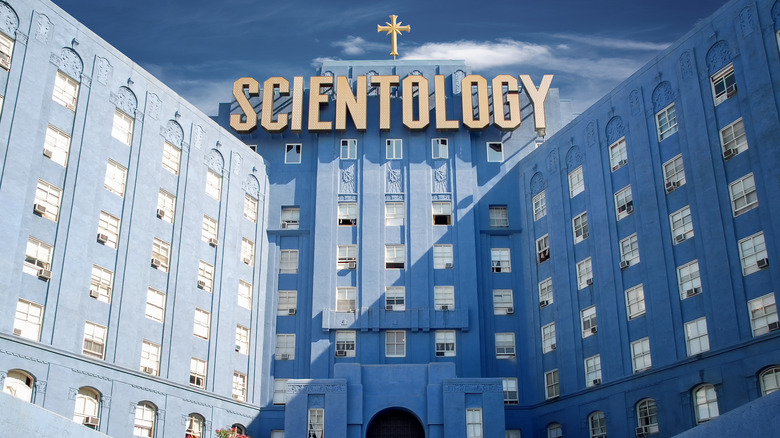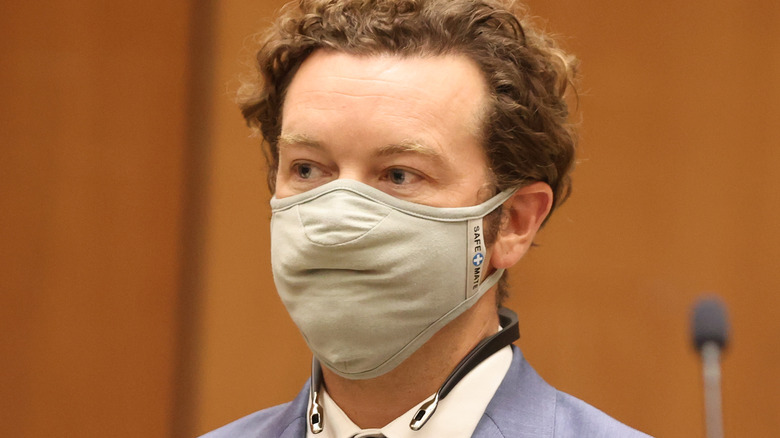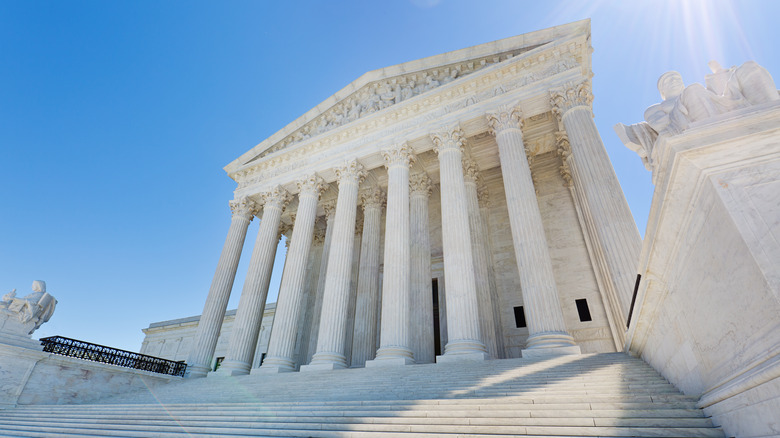Why Scientology's Message About Reporting Crimes Is So Tangled
Amid actor Danny Masterson's 2021 trial, the Church of Scientology released a statement to the Los Angeles Times contradicting what Scientology founder L. Ron Hubbard wrote in his book — "Introduction to Scientology Ethics" — regarding church policy on members reporting other members to law enforcement. It was just one of many examples of the tangled nature of Scientology's message about reporting crimes.
Masterson, a Scientologist, was charged with three counts of rape. His accusers were all former Scientologists, and the prosecution argued he was protected by Scientology dogma that prohibits church members from speaking to the authorities about legal matters involving another member, the Associated Press reported. Scientology denied those claims when church spokeswoman Karin Pouw said in part (via LA Times), "Church policy explicitly demands Scientologists abide by all laws of the land, including the reporting of crimes. This is blatantly clear in the documents we understand were put before the Court — and many others." But in "Ethics," Hubbard said that "delivering up the person of a Scientologist without defense or protest to the demands of civil or criminal law" is a "high crime" in the church.
Conflicting claims
During the Danny Masterson trial, one defendant said she wrote a letter to Scientology's International Justice Chief, Mike Ellis, while she was still in the church. Ellis typically handles disputes between Scientologists, and she asked his permission to bring charges against Masterson, former star of "That '70s Show," per Variety. In his response letter, Ellis told the plaintiff — identified in the press as Jen B. — to make up her own mind on the matter. But he seemingly contradicted himself when he added, "Regardless of your decisions in the legal arena, you do need to apply LRH technology as the ultimate solution to any problem," referring to the Scientology doctrine developed by L. Ron Hubbard.
In court, Jen. B said she took that to mean she should not turn to the authorities because of the church's doctrine. "My parents would have to disown me. My friends, everyone I knew would disown me. I couldn't speak to them ... I could be lied, cheated, stealed, harmed or destroyed," she said. Meanwhile, at an earlier Masterson hearing, another accuser identified as N. Trout said, "[In Scientology] if you have a legal situation, you may not handle it externally from the church. You'll be excommunicated."
Scientology, Masterson, and the Supreme Court
The enforceability of Scientology doctrine in the legal arena is also complex. According to Rolling Stone, in 2019, four women and the husband of an accuser also brought a civil suit against Scientology, alleging harassment from the church in response to the rape allegations. In December 2020, a Los Angeles Superior Court judge ruled that four of the five had signed an arbitration agreement with the church, barring litigation, even though the five involved had left the church by that point.
With legal precedent in other mainstream religions, the litigants were then left with religious arbitration, according to the court ruling. However, the California Supreme Court ordered the appeals court to reconsider in November 2021, and in January 2022 the appeals court ruled the case could move forward. In October 2022, a California court denied an appeal brought by the Church of Scientology. Hearings in the separate Masterson-related Scientology civil case were expected to begin shortly after his criminal case was settled. In May 2023, Masterson was convicted on two counts of rape, and on September 7, 2023, he received 30 years to life in prison, the LA Times reported.


